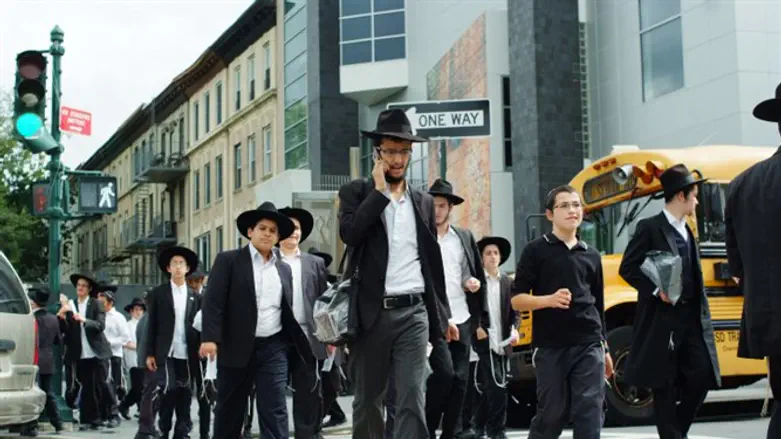
As coronavirus cases increase in Orthodox Jewish areas of New York, some residents of those areas say they feel attacked or insulted, accusing authorities of creating a stigma based on their faith, AFP reported.
Governor Andrew Cuomo has said cases are spiking in parts of the New York suburbs that are home to Orthodox communities, saying he was set to meet with religious leaders to discuss combatting the spread.
Mayor Bill de Blasio said the city was sending police and health workers to impacted neighborhoods to promote distancing and mask-wearing -- and to issue summons if necessary to anyone refusing to comply.
"This is an inflection point," de Blasio said, according to AFP. "We have to take more action at this point... we will be escalating with each day depending on what we see happening on the ground."
Residents of the Orthodox communities say they feel attacked.
"Brooklyn is not a Jewish community, we are part of the community," Steve Zuker, 52, told AFP, speaking in front of the Landaus Shul, a synagogue in the Midwood neighborhood where the positivity rate is approaching six percent.
"We feel attacked, and when you are attacked on your belief, people attack back," he said.
Some people also cite several tweets that the mayor posted as the epidemic peaked in April, such as when de Blasio threatened "the Jewish community" with summons and arrest after a large crowd of Hasidic Jews gathered for a rabbi's funeral in Brooklyn's Williamsburg neighborhood.
Speaking in front of the Midwood synagogue, one young man, who identified himself to AFP by his initials M.E., accused the "liberal media" and "Socialist party" of sowing divisions.
"People just try to destroy us," the 20-year-old said. "We're trying to be careful."
"For people to say that we are not being careful, it's insulting."
Akiva, a 38-year-old teacher at a Yeshiva school, emphasized to AFP that the Orthodox community is not a united bloc, and includes many viewpoints.
The son and brother of doctors, he said the rise in positive cases is linked to the fact that for several months infections stayed minimal, so social distancing relaxed.
"Now it's moving up again, so I think you're going to see compliance jumping," he said.
Noting that leading rabbis have mobilized to encourage precautions, Akiva added that "Nothing's going to change overnight, but I do think that has definitely helped."